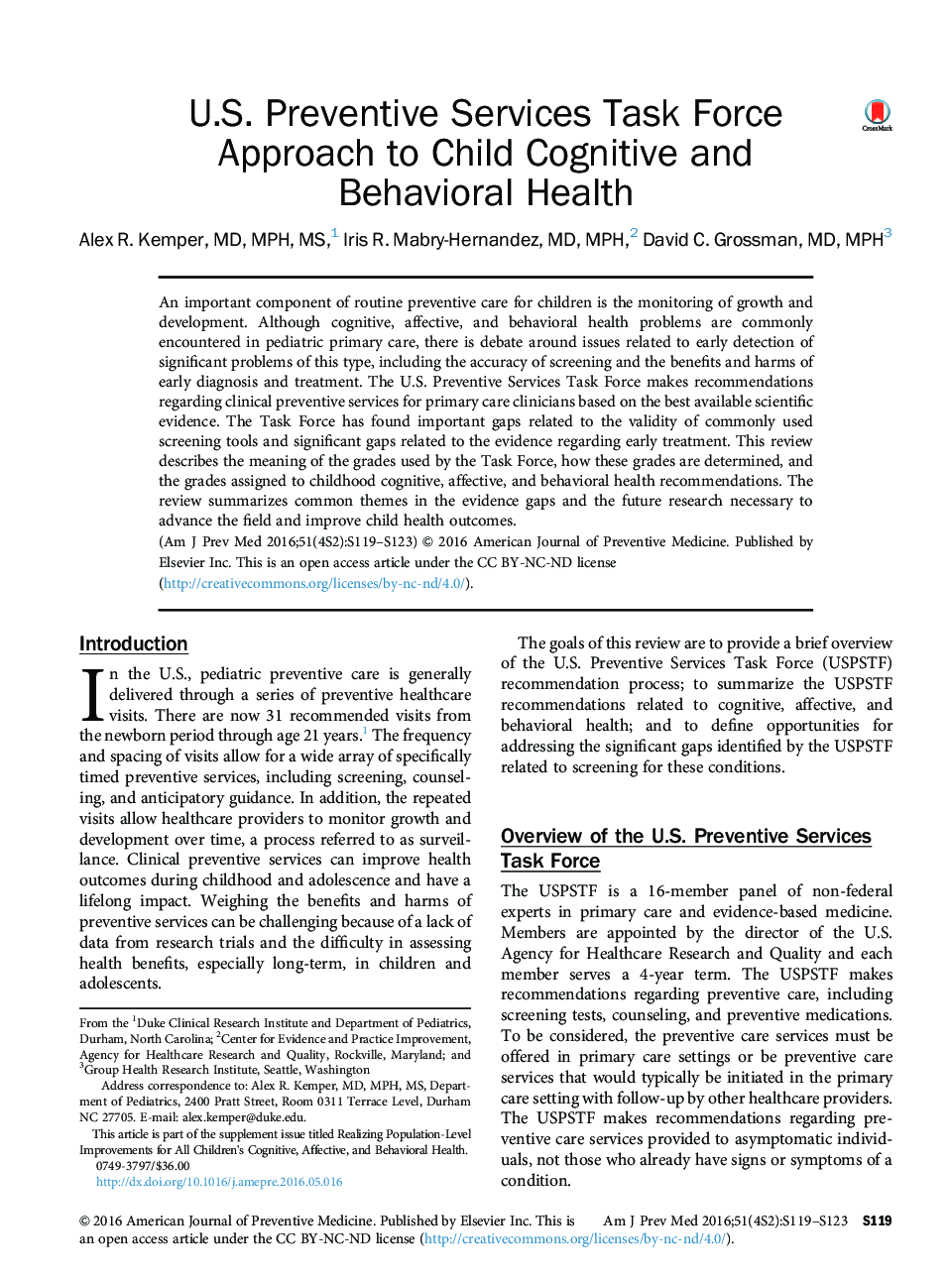| Article ID | Journal | Published Year | Pages | File Type |
|---|---|---|---|---|
| 6237148 | American Journal of Preventive Medicine | 2016 | 5 Pages |
An important component of routine preventive care for children is the monitoring of growth and development. Although cognitive, affective, and behavioral health problems are commonly encountered in pediatric primary care, there is debate around issues related to early detection of significant problems of this type, including the accuracy of screening and the benefits and harms of early diagnosis and treatment. The U.S. Preventive Services Task Force makes recommendations regarding clinical preventive services for primary care clinicians based on the best available scientific evidence. The Task Force has found important gaps related to the validity of commonly used screening tools and significant gaps related to the evidence regarding early treatment. This review describes the meaning of the grades used by the Task Force, how these grades are determined, and the grades assigned to childhood cognitive, affective, and behavioral health recommendations. The review summarizes common themes in the evidence gaps and the future research necessary to advance the field and improve child health outcomes.
